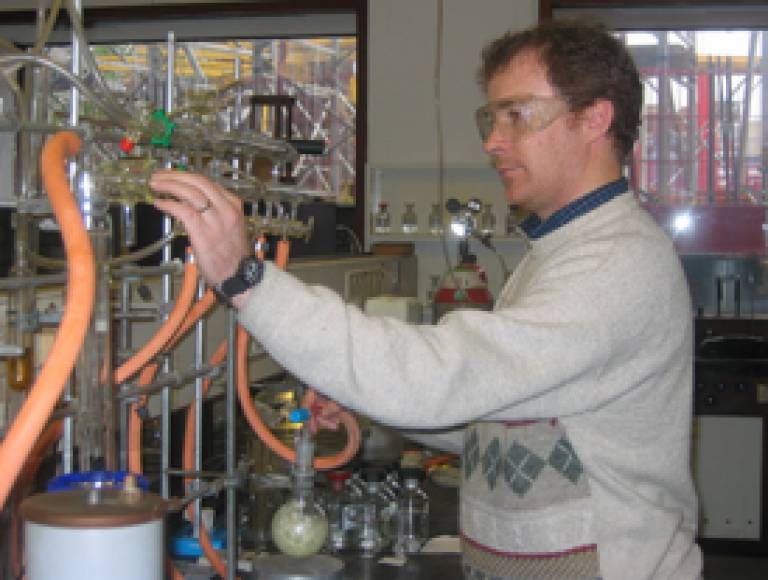Intelligent glass
1 October 2004
Professor Ivan Parkin and PhD student Mr Troy Manning, of UCL's Department of Chemistry, have successfully created a thermochromic coating for glass which reacts to changes in temperature by altering its optical qualities so that the sun's rays are either reflected or absorbed.

This discovery has tremendous potential for commercial development, and the team are currently in negotiations with a manufacturer. On a warm day, for example, the sun's rays could be reflected away from windows, thereby reducing air conditioning costs. On a cold day, the coating would enable more heat to come through the glass from the sun's rays.
The coating, which is composed of a material known as vanadium dioxide, normally changes at temperatures of 70°C. Using a technique known as 'atmospheric pressure chemical vapour deposition', the chemists manipulated the coating by covering it with another chemical. This ensures that the glass can be altered at any temperature, whatever the weather.
Professor Parkin said: "This is the first time that the coating has been successfully adapted to react to any changes in temperature, and although it is still in development, I am confident that we can continue to adjust it until we have a commercially viable product which has a multitude of uses."
Professor Parkin will discuss the process of incorporating thermochromic films into window products and its technological and environmental advantages as part of UCL's Lunch Hour Lecture programme. Entitled 'Intelligent Window Coatings', the talk will take place on 18 November 2004.
For more information on UCL's Lunch Hour Lecture Programme use the link below.
 Close
Close

